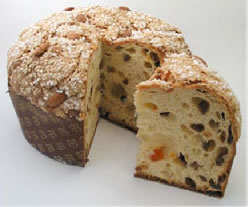Mwynheuais Nadolig – bwytais lawer o fwyd blasus (cogyddes ardderchog yw fy mam), ac ymlacais o blaen y tân a’r teledu. Ddydd Mercher, aethon ni am dro o amgylch yr Ardal Lluniau a bwyton ni ginio mewn tafarn ger tŷ Beatrix Potter (Hill Top). Nos Iau daeth fy chwaer ac ei chariad, ac aethon ni i dafarn gyda’n gilydd. Yn anffodus, roedd hi’n bwrw glaw trwm ac roedd y gwynt yn chwythu pan o’n ni’n adael y tafarn, ond yn ffodus cawson ni lifft gyda chyfaill fy chwaer.
Cyrhaeddais ‘nôl yn Brighton Nos Wener ar ôl taith hir iawn ar y trên. Achos roedd gorsaf Euston yn cau, o’n i’n gorfod y “llwybr golygfaol” trwy Birmingham a Basingstoke, yn hytrach na mynd yn syth o Lancaster i Lundain.
Gaoth agus báisteach
Bhain mé sult as an Nollaig – d’ith mé go leor bia blasta (is cócaire iontach í mo mháthair), agus ghlac mé mo shuaimhneas ar aghaidh an thine agus an teilifís. Dé Céadaoin chuaigh muid ar turas timpeall Ceantar na Lochanna agus d’ith muid lón i dteach tábhairne in aice tí Beatrix Potter (Hill Top). Oíche Déardaoin tháinig mo dheirfiúr agus a fiancé, agus chuaigh go dtí an teach tábhairne le cheile. Ar an drochuair, bhí báisteach trom agus gaoth láidir ann nuair a thosaigh muid abhaile, ach ar an dea-uair dúinn fuair muid síob le cara mo dheirfiúr.
Tháinig mé ar ais i mBrighton oíche Aoine i ndiaidh turas an fhada ar an traein. Bhí stáisiún Euston dúnta agus dá bhrí sin, bhí orm bealach eile a thógáil trí Birmingham and Basingstoke, in áit ag dhol díreach o Lancaster i Londain.
Wind and rain
Christmas was good – I eat lots of lovely food (my mum is a great cook), and relaxed in front of the fire and the telly. On Wednesday we went on a drive around the Lake District and had lunch in a pub next to Beatrix Potter’s house (Hill Top). My sister and her fiancé arrived on Thursday evening and we went out to one of the local pubs – the slightly spooky one up in the woods. It was tipping it down and blowing a gale when we left the pub, which kept the vampires away, but fortunately we got a lift home with one of my sister’s friends.
I got back to Brighton on Friday evening after a seemingly interminable journey. Euston station was closed, so instead of going directly from Lancaster to London, I had to take the “scenic route” via Birmingham and Basingstoke.

